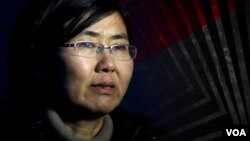Serious human rights abuses continue under the Communist Party-led government of China, according to the latest State Department Human Rights report.
In 2015, the Chinese government launched a crackdown against defense lawyers who take on human rights and public interest cases. Although most of the more than 300 lawyers and human rights activists detained in 2015 were released, 16 remained in pretrial detention. Four others were sentenced to jail terms ranging from three years to seven and one-half years in trials that lacked basic due process. Public security officials continued to harass family members of rights defenders and lawyers in retaliation for their work.
Wang Yu, one of the most prominent lawyers detained during the crackdown, was released on bail after her televised confession, which was likely coerced, but she and many others remain under various restrictions, such as continuous surveillance at undisclosed locations.
The Chinese government continued to tighten controls over civil society organizations. A new law placed foreign nongovernmental organizations, or NGOs, under the supervision of the Ministry of Public Security, suggesting foreign NGOs were a “national security” threat. Although the law was not scheduled to go into effect until January 1, 2017, many foreign NGOs and their domestic partners began to curtail operations before the end of 2016.
Authorities continued to censor and tightly control public discourse on the internet, and in print and other media.
Official repression of the freedoms of speech, religion, movement, association, and assembly of Tibetans in the Tibet Autonomous Region and other Tibetan areas and of Uighurs in the Xinjiang Uighur Autonomous Region continued to exceed restrictions in other areas both in terms of severity and scope.
The government continued to impose a coercive birth-limitation policy that, despite lifting one-child-per-family restrictions, denied women the right to decide the number of their children, and in some cases officials forced women to have abortions, sometimes at advanced stages of pregnancy.
The United States will be steadfast in its commitment to stand up for human rights and democracy around the world, including in China. It is not just a moral imperative, said U.S. Secretary of State Rex Tillerson, "but is in the best interests of the United States in making the world more stable and secure."




